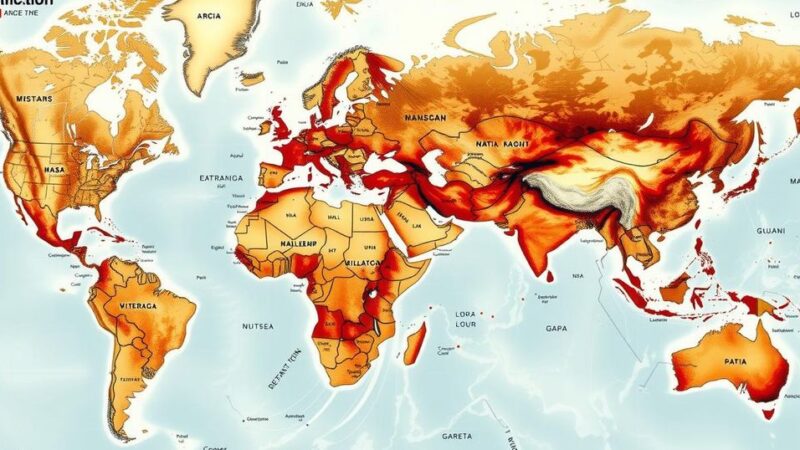Al-Shabab has shown signs of resurgence in Somalia, regaining territory and threatening the capital, Mogadishu. The group’s recent control over key locations, along with a failed assassination attempt on President Mohamud, raises alarms about the government’s capacity to respond amid waning international support. Analysts express concerns about the implications of diminished assistance, signaling a shift that may favor Al-Shabab’s advances.
Recent developments in Somalia reveal a concerning resurgence of the Al-Shabab militia, which is regaining ground after significant losses in previous years. The group recently made strategic gains, notably coming close to assassinating President Hassan Sheikh Mohamud. Analysts suggest support from the United States and the African Union is waning, further complicating the security landscape.
Key strategic locations in the Middle and Lower Shabelle regions have fallen back into the control of Al-Shabab, as evidenced by a bomb blast on March 18 that narrowly targeted the presidential convoy.
Officials report that Al-Shabab has taken over the center of Masaajid Cali Gaduud, a critical town in Middle Shabelle, shortly after the president’s visit aimed at counteracting the militia’s influence. Local residents have confirmed a retreat by Somali government forces.
Analyst Matt Bryden highlighted a pattern of government retreat, noting the loss of strategic chokepoints, including crucial bridges in Lower Shabelle. “We see the evidence of an army in disarray and in retreat,” Bryden commented, emphasizing the government’s struggle to maintain control.
Fears are growing among Mogadishu’s residents that the government may not protect the city adequately, increasing the risk of Al-Shabab encirclement. Nonetheless, President Mohamud remains resolute, asserting that the fight will continue from a fortified location in Cadale. “The war will not stop; we are not coming back from where we are now, and we will attain the victory we seek,” he stated to troops.
The government faces additional challenges as international support appears to be decreasing. The African Union’s support has dwindled since its peak in 2007, and financial contributions from the United States remain uncertain following the rebranding of AU forces to the AUSSOM, which has raised concerns among analysts.
Matt Bryden warns that reduced security assistance could shift the balance of power toward Al-Shabab. Conversely, some experts argue that while the group is gaining momentum, its advances stem from the government’s distraction by political matters and failed electoral plans. “The government has been more focused on politics, on other issues,” noted Omar Mahmood from the International Crisis Group, suggesting that Al-Shabab is exploiting local grievances amid political instability, leading to a complex and evolving conflict.
In summary, the resurgence of Al-Shabab in Somalia raises significant security concerns as the group makes territorial gains amid diminishing support for the Somali government. While President Mohamud remains committed to the fight, analysts warn of a potential shift in dynamics favoring Al-Shabab due to reduced international backing and government distractions with political issues. The situation remains fluid, necessitating close monitoring of both military and political developments.
Original Source: www.arabnews.com






